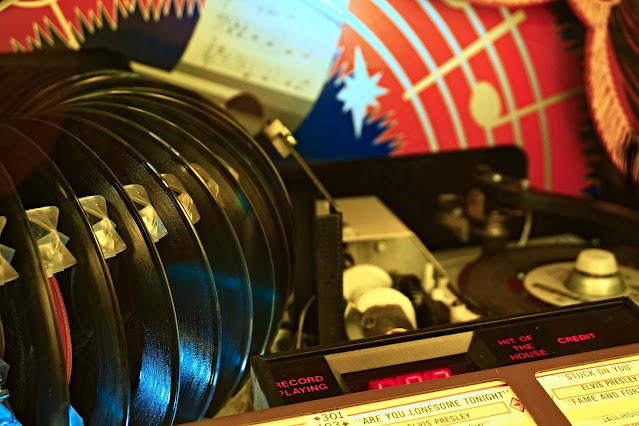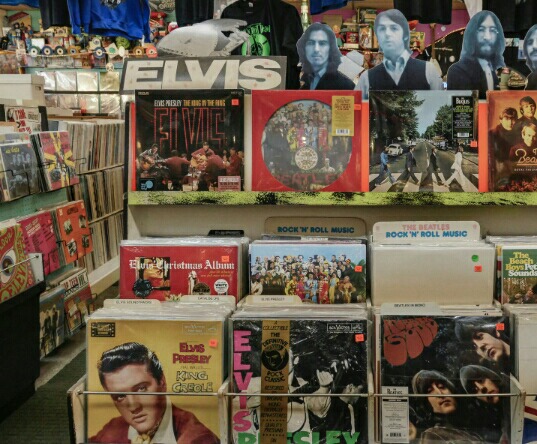Before the pandemic hit, Elvis Costello was living what he calls a "lighthearted and jet-set" way of life.
He'd recorded a generally welcomed collection, 2020's Hey Clockface, finished a visit and had even followed a small bunch of new tunes in Helsinki and Paris before Covid hit stop on the world.
The Last Word: Elvis Costello On Reassessing His Back Catalog
"The following thing, I wound up gazing at the water on Vancouver Island, not knowing when I would leave once more, not realizing when we'd begin work once more," he says on a call from his Manhattan home this previous November. "So I checked out a gathering of tunes that I had started that year, and I saw they were really associated somehow or another.
They were, I prefer not to utilize the word 'philosophical,' however, they viewed life at various occasions - the honesty of youth, the disarray of youthful adulthood, and afterward glancing back at various things with an alternate point of view later." Those tunes - some of which sound lighthearted and jet set, some which mirror the artist lyricist's brand name ambivalent agonizing - presently include his 32nd studio collection, The Boy Named If, out this week.
Costello, who was conceived by Declan MacManus in London 67 years prior, has forever been a reflective lyricist, chronicling the asperity, disgrace, and intermittent hints of something to look forward to that go with regular daily existence for the beyond 40 or more years. He's quick to bring up that while melodies like "Alison" and "Siphon It Up" are darling works of art, nor were crush victories. His greatest hit in the U.S. Came in 1987 with "Veronica," a tune about the impossible subject of Alzheimer's that topped at Number 19 on the Billboard diagram. So his point of view on his profession is that it's been adequately effective to permit him to continue to make more collections, visit, and work together with specialists he grew up respecting. Throughout the long term, he's jumped all over potential chances to work with Paul McCartney, Burt Bacharach, the Roots, and numerous others. His imaginativeness acquired the vocalist an Order of the British Empire decoration for his commitments to human expression.
In a meeting for Rolling Stone's Last Word section, Costello considered what he's realized at essentially every phase of his life and what makes a big difference for him. "In a meeting for Rolling Stone's Last Word section, Costello considered what he's realized at essentially every phase of his life and what makes a big difference for him. "I've been doing it long enough since I out to have been mastered something," he says. "For the wellbeing of paradise, you can turn into a minister and a specialist in seven years; I've been doing this 43, I ought to have the option to accomplish something at this point. I surely can do nothing else."
In 1977, you said that your essential inspirations were "retribution and culpability." Does that actually hold true? Yeah, I had tanked with regards to a large portion of a container of Pernod when I said that. I thought it sounded great thus did the columnist, and afterward, I have individuals citing it back to me as though it was a page from the instruction. It's simply some snapshot of grandiosity. It sounds sensational, isn't that right? Be that as it may, thoroughly consider it briefly and it doesn't check out. Be that as it may, terribly beautiful.
Elvis Costello Is Still Trying To Grow Up
How could you figure out how to move past that press persona?
Making at least 30 collections. Everyone is diverse in character. Those records now and then expect you to unload that mythmaking part of those initial not many records, since, supposing that you pay attention to the singular tunes on those first collections, you'll observe substantially more subtlety to what exactly's being said with regards to anything. Also somewhat, assuming that you're left with my face and my voice, things sound more forceful because I'm an anomaly. I have a hole in my teeth. Everything bursts out of my mouth as either a danger or a growl [laughs].
How did the treat figure make you contemplate the different phases of life while composing the melodies on The Boy Named If? I really do have young men that will be 15 one week from now, and a senior child who's in his forties, so I have the point of view on a portion of these advances. Also, I lost my dad 10 years prior; I lost my mom early last year. Those things will generally make you consider yourself a youngster since now you're advanced by that occasion here and there. "For the wellbeing of paradise, you can turn into a minister and a specialist in seven years; I've been doing this 43, I ought to have the option to accomplish something at this point. I surely can do nothing else."
In 1977, you said that your essential inspirations were "retribution and culpability." Does that actually hold true? Yeah, I had tanked with regards to a large portion of a container of Pernod when I said that. I thought it sounded great thus did the columnist, and afterward, I have individuals citing it back to me as though it was a page from the instruction. It's simply some snapshot of grandiosity. It sounds sensational, isn't that right? Be that as it may, thoroughly consider it briefly and it doesn't check out. Be that as it may, terribly beautiful.
Elvis Costello and The Imposters Still Blast Away
How could you figure out how to move past that press persona? Making at least 30 collections. Everyone is diverse in character. Those records now and then expect you to unload that mythmaking part of those initial not many records, since, supposing that you pay attention to the singular tunes on those first collections, you'll observe substantially more subtlety to what exactly's being said with regards to anything. Also somewhat, assuming that you're left with my face and my voice, things sound more forceful because I'm an anomaly. I have a hole in my teeth. Everything bursts out of my mouth as either a danger or a growl [laughs].
How did the treat figure make you contemplate the different phases of life while composing the melodies on The Boy Named If? I really do have young men that will be 15 one week from now, and a senior child who's in his forties, so I have the point of view on a portion of these advances. Also, I lost my dad 10 years prior; I lost my mom early last year. Those things will generally make you consider yourself a youngster since now you're advanced by that occasion here and there.
How did your mom and father impact you as a songwriter? I composed a 600-page book [2015's Unfaithful Music and Disappearing Ink] kind of romanticizing the accounts of my granddad and my dad as voyaging performers and what it meant for me. However, I additionally started that book when my dad was in his last sickness with Parkinson's. Even though he had passed during me composing that book, he was somewhat alive on the page, right? The genuine truth was, it was my mom that advised me to record things that upset me or pestered me, both great and awful ways. That was her model.
 |
| Elvis Costello |
You have a line on "Goodbye, OK," a track from the new record, about "Elvis in the velvet in the future." What's your relationship with the name Elvis now? I never genuinely hear this is because my family doesn't call me that; a great many people call me by my initials, which my father started. He referred to me as "D.P." [for "Declan Patrick"] so that is an Irish show, I surmise, that he got. Also, I don't sincerely hear many individuals call me by that name, so I simply don't hear it any longer. It resembles a mysterious personality or something; it resembles being called Clark Kent. It's simply a name. It's simply a brand.
You've played with the Attractions Steve Nieve and Pete Thomas for over 40 years in various limits. What's the key to making a joint effort like that work? Well, obviously in the past we didn't cooperate. They had various perspectives on what that band was; we had arrived at an end with that band a few times, a few times, well before we really disbanded interestingly, not to mention the subsequent time. … Even when we weren't strong, we made great records. Blood and Chocolate was a decent record, and we were totally at war more often than not. In some cases not getting along can be great. You didn't need to be joyful or merry constantly. That is not actually what's going on with it.
What actually draws you to composing rock music? I try to avoid a lot of awesome music. I like stone and roll. I think assuming that you lose the roll section, a ton of the fun leaves it. What's more when individuals ask me, "What's your cherished record?" I as a rule don't name any electric-guitar records made over the most recent 30 years because the beat is so square. I like things that float a little or swing a little, regardless of whether it's stone and roll or genuine jazz that swings, or even how Hank Williams records lope.
You pay attention to these records out of Nashville, they couldn't drift assuming that you filled them brimming with water. They simply don't; they're square and they sound like awful stone records from the Nineties. To my ear, they simply do. In any case, someone enjoys them. My granddad - he was a trumpet player - never used to censure different artists. I'm attempting to live by his model a little better on these occasions and not be so reproachful of every other person. In any case, you can't really care for everything.
Do you want to record tunes in an alternate style?
I want to sing specific sorts of tunes that I'll always be unable to sing. I don't believe I'm truly going to sing as a countertenor.
How do tunes treat wish you would sing? It can be extraordinary to sing [Purcell's] "When I Am Laid in Earth" like Jeff Buckley did at Meltdown in '95. It was amazing to hear him sing this piece of music from Jacobean occasions, and it simply feels like it could've been composed for his voice. Be that as it may, he had such an endowment of an instrument of a voice. He could go that to a wide range of music that took his advantage, and it didn't sound in any capacity a gesture that he made it happen. He would sing Nusrat Fateh Ali Khan pieces he'd advance phonetically; he didn't comprehend the language. He discussed singing Mahler at that celebration. I said, "That is in German. Do you communicate in German?" "No, I'll learn it."
I was arranging that celebration. Presently it's extremely impactful because it was his last execution in London, yet we didn't realize that then, at that point. His life was ahead. There was this multitude of incredible things that he was all the while going to do. That was only an extremely dismal incident. We ought to be content that he sang it that one time. You heard him sing something like ["When I Am Laid in Earth"], definitely you've heard Grace, you've heard "Corpus Christi Carol" by Benjamin Britten - he could sing that also as he could sing a melody by Morrissey, even though why anyone would need to do that, I don't have the foggiest idea. Or then again a melody by Led Zeppelin; why anyone would need to do that, I don't have the foggiest idea, yet he did. That is his decision.
 |
| Elvis Costello |
You've worked together with Paul McCartney and Burt Bacharach on tunes, yet they appear to compose words to fit the tunes where you have said you do the inverse. What have you gained from working with them? With Paul, we began unexpectedly. One of us would begin playing a musicality and afterward, some congruity would arise. Like most everyone, I've been watching Get Back. What's more, it's truly astounding to see the Beatles composing like that … making those equivalent staggering strides that all lyricists take, allowing the hogwash words nearly to maintain the melody briefly, and afterward, the genuine importance emerges from that. So I did really have that experience of composing with Paul thusly. I'm not saying [my experience is] equivalent, however, that was one of the manners in which we worked.
Shouldn't something be said about working with Burt Bacharach? With Burt Bacharach, it was altogether different. It was transcendent music first and frequently either of us would offer the main melodic expression. Sometimes, I composed a tune to which he would compose the extension. Now and again composing each and every other line would come from either of us whenever we'd got a discourse moving. However, at that point, my occupation is to react to the disposition and the ramifications of that music, what might serve that music in an account. The mindset of the music was evidently melancholic and intelligent, so I would have rather not overcomplicate verses with heaps of flashy pictures. I needed to keep the language genuinely candid.



Comments
Post a Comment